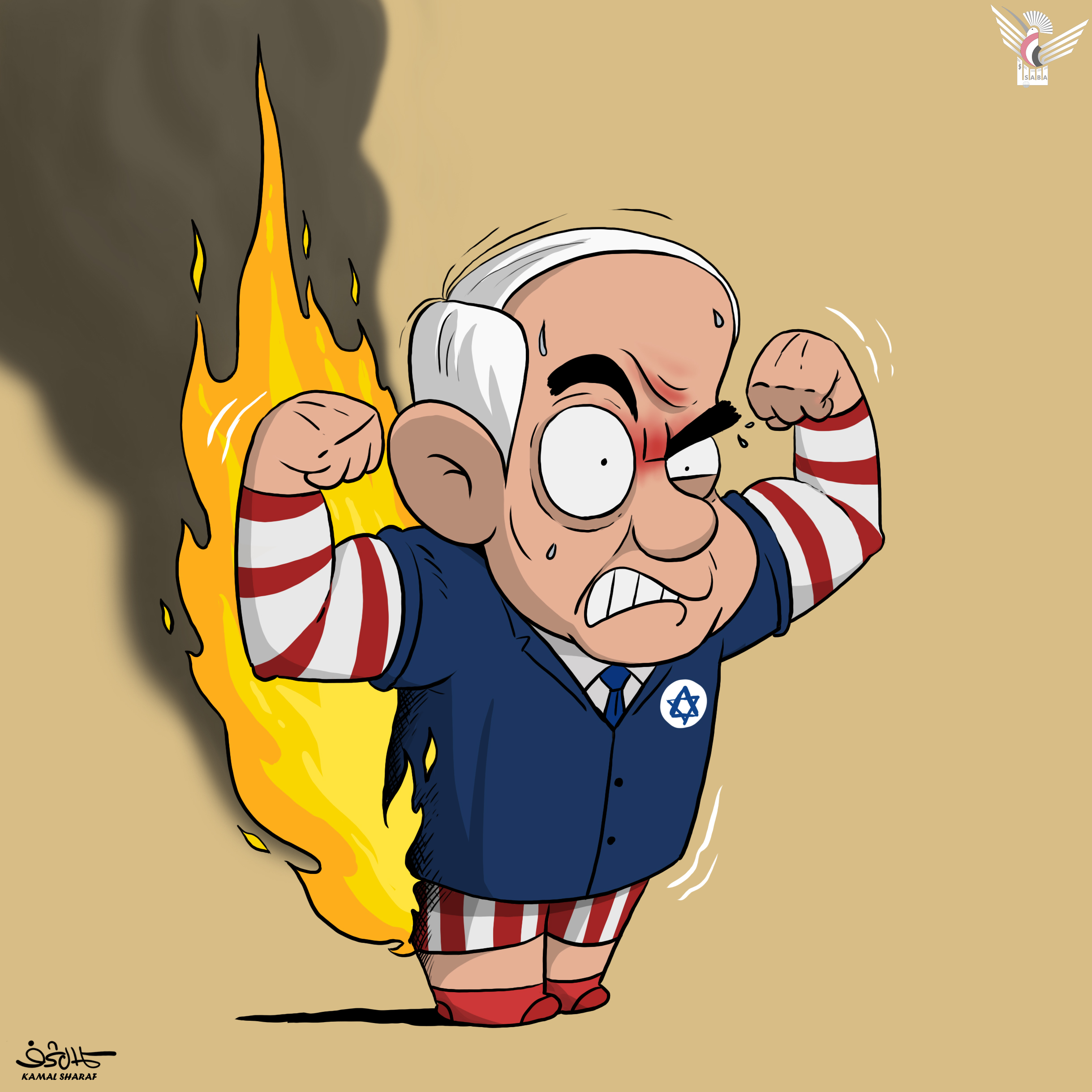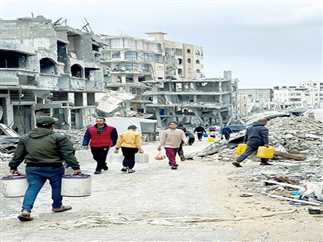Sana’a - (Saba):
Under false humanitarian and security pretexts, the outlines of a suspicious U.S. plan to deliver aid to residents of the Gaza Strip have emerged.
However, it has become clear that this plan effectively serves as a military foothold enabling the Zionist war machine to crush what remains of the Palestinian people's resilience and eliminate their resistance.
As part of its deceptive political tactics, the U.S. administration announced a new plan to deliver food and essential aid to around 60% of Gaza’s population through distribution sites overseen by American private security contractors—completely excluding Palestinian and international institutions. Observers warn this marks a dangerous shift in the humanitarian and political dimensions of the aggression on Gaza.
While the U.S. describes the plan as “humanitarian,” observers assert it is actually a means to prolong the war and provide a new American cover for an even more brutal phase of aggression.
Many analysts see the plan not as a humanitarian effort, but as a dangerous, racist project aimed at isolating Palestinians in closed ghettos and apartheid-style camps, stripping them of basic necessities, and pushing them toward forced displacement.
Thus, the initiative is not merely a relief plan, but part of a broader American scheme to pave the way for mass displacement and facilitate the liquidation of the Palestinian cause.
Security Conditions
According to analysts, the U.S. is now weaponizing humanitarian aid as a pressure tool in military tactics aimed at enabling Israel to achieve total control over Gaza after failing to break Palestinian society through military force.
The plan has sparked widespread opposition from the UN and Palestinian and international human rights organizations, who warn that tying aid to security conditions violates humanitarian principles and jeopardizes the neutrality of relief efforts.
In one of the latest condemnations, UN Under-Secretary-General for Humanitarian Affairs Tom Fletcher criticized the plan, calling it “a cover for more violence and displacement.” Speaking before the UN Security Council, he described the plan as “a farce and deliberate distraction.”
Similarly, the UK’s Permanent Representative to the UN, Barbara Woodward, stressed that Britain "will not support any humanitarian mechanism used to achieve political or military objectives or that endangers vulnerable civilians.”
A Tool of Pressure
The UN has stated that the proposed aid mechanism for Gaza is “designed to control and limit supplies down to the last calorie and grain of flour.”
UN Deputy Spokesperson Farhan Haq affirmed that the UN will not participate in any arrangement that fails to adhere to the core humanitarian principles: humanity, neutrality, and independence.
Jens Laerke, spokesperson for the UN Office for the Coordination of Humanitarian Affairs (OCHA), confirmed his agency “will not take part in this plan,” saying: “There is no justification for creating a system that contradicts the fundamental principles of any principled humanitarian organization.”
James Elder, spokesperson for UNICEF, warned the plan would increase suffering among children. He said that placing all distribution centers in southern Gaza appears to be an attempt to “weaponize aid” and use it to forcibly displace Palestinians again.
UN media quoted Elder as saying that the plan “violates core humanitarian principles” and aims to reinforce control over life-saving materials.
Violation of International Humanitarian Law
The World Health Organization (WHO) acknowledged that while the U.S. plan may meet some basic needs, it fails to meet essential health and nutrition standards—especially in the face of a deteriorating humanitarian situation in Gaza. Reports show that 95% of flour reserves have been depleted, many families rely on one meal per day, and more than 10,000 cases of child malnutrition have been recorded, including 1,600 acute cases.
Amnesty International in Switzerland expressed deep concern about the plan, warning that the use of private security forces could violate international humanitarian law, particularly if linked to military or political operations.
Meanwhile, UNRWA described the U.S. plan as "insufficient" and "a driver of forced displacement," asserting that with its 76 years of experience and wide network, it remains the most capable agency to manage humanitarian operations in Gaza.
The Humanitarian Country Team in the occupied Palestinian territories also labeled the plan as dangerous and incompatible with basic humanitarian principles, accusing it of being designed to strengthen control over essential supplies and serve as part of a military strategy.
Militarizing Aid
Ismail Al-Thawabta, Director of the Government Media Office in Gaza, firmly rejected what he called “forced isolation schemes,” describing them as “an extension of the ongoing genocide for the past 19 months.”
Amjad Shawa, head of the Palestinian NGOs Network, said the joint U.S.-Israeli plan “exploits famine to achieve military objectives,” calling it a "legal crime" that violates the principles of humanitarian work and forces people to flee—especially from the north to Rafah in the south.
Salah Abdel Ati, head of the International Commission to Support Palestinian Rights, warned the plan carries “malicious political and military goals.” In media statements, he said the initiative represents a continuation of the forced displacement strategy, aiming to isolate Palestinians in controlled centers or camps, eventually leading to their expulsion from Gaza.
He stressed that the proposed mechanism is extremely dangerous and is being used as a cover to forcibly relocate people under the guise of humanitarian relief.

| more of (Reports) |




